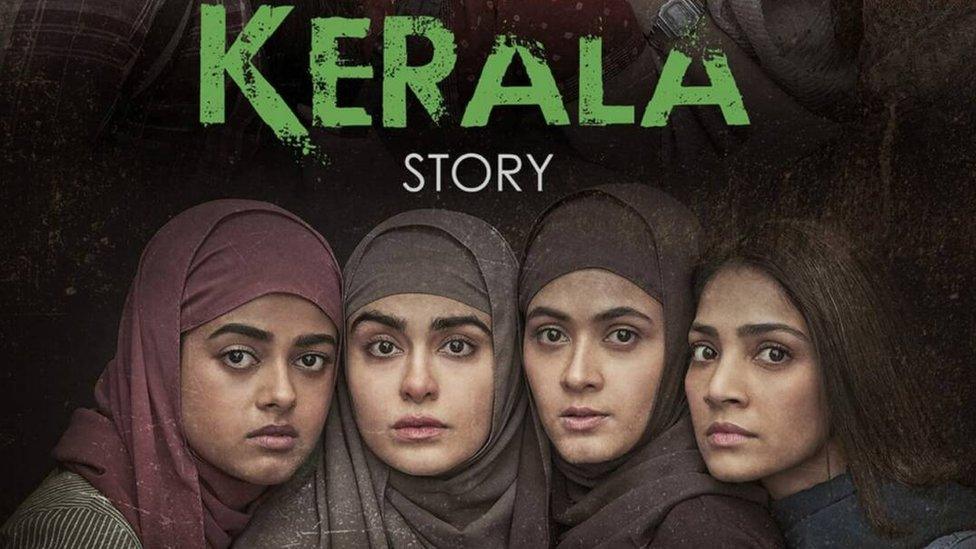The Kerala Story: Supreme Court lifts West Bengal's ban on Islamic State film
- Published

The film has constantly run into controversies
India's Supreme Court has stayed a ban imposed by West Bengal state on a controversial film that shows three women from the country joining the Islamic State group.
The court also asked the film's makers to add a disclaimer that the film is "a fictionalised version of events".
The Kerala Story was banned in West Bengal last week.
The state government said the decision was in the interests of maintaining peace.
The film's makers say The Kerala Story is based on years of research, but critics have called it propaganda.
In the southern state of Tamil Nadu, an association of multiplex owners had also said they would stop screening the film, citing protests and low audiences.
The film's makers approached the Supreme Court against the ban in West Bengal and the move by multiplex owners, which they called a "de facto ban" against their work.
On Thursday, the Supreme Court asked authorities in Tamil Nadu to provide adequate security at theatres for people to see the film safely.
It also directed authorities in West Bengal not to take any steps to prevent screenings of the film.
The Kerala Story - based in the southern state of Kerala - had sparked controversy months before its release.
In its teaser, released in November, an actress had claimed that her character was one among 32,000 women from the state who had joined Islamic terror groups.
But after criticism and legal challenges, the makers updated the film's description on YouTube to the "compilation of the true stories of three young girls from different parts of Kerala".
In its Thursday's order, the Supreme Court asked the makers to add two disclaimers to the film as well - one which said that the was "a fictionalised version of events" and another saying that "there is no authentic data to back up the suggestion that the figure of converted people is 32,000 or any other figure".
The court said that it will watch the film before hearing other petitions against it in July.
After West Bengal had announced the ban, some filmmakers and several leaders of the ruling Bharatiya Janata Party (BJP) had criticised the move. The BJP is in power nationally but is in the opposition in West Bengal, which is governed by the Trinamool Congress.
Two state governments - Uttar Pradesh and Madhya Pradesh, both governed by the BJP - have made the film tax-free.
This week, over 100 people were arrested in the western state of Maharashtra after one person died and eight others were injured in communal clashes triggered by a social media post on the film.
BBC News India is now on YouTube. Click here, external to subscribe and watch our documentaries, explainers and features.
